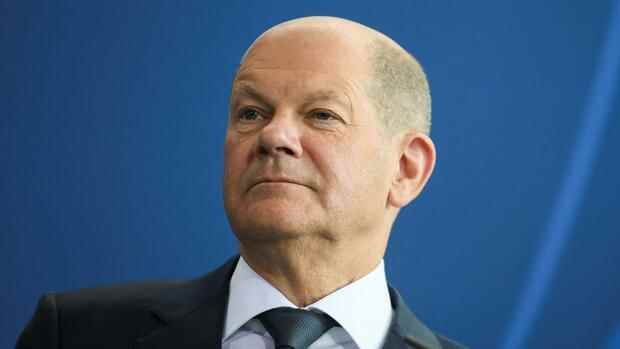As heated as the mood in the country is at times, the chancellor is right on one key issue.
(Photo: Reuters)
When Olaf Scholz proclaimed the turning point after Russia’s attack on Ukraine, the Chancellor used the term to describe the epochal upheaval in foreign, security and defense policy. But the outline of a new security policy era is incomplete.
The turning point is also a turning point in the relationship between politics and citizens. Scholz and the SPD have not yet internalized that. And that’s why they were punished in the state elections in North Rhine-Westphalia.
In the public debate there is constant talk of upheavals. Words like “transformation”, “change” or “structural reforms” are little more than rhetorical political folklore. But citizens have a keen sense of when a new era begins that will affect them directly, inevitably, and immediately. Since the outbreak of war in Eastern Europe, fears of an escalation of the conflict, a nuclear attack and rising prices have become palpable. Not only for the parties, but also for the citizens, many old certainties dissolved into thin air.
SPD weighs citizens in welfare state normality
They know that energy will not be as cheap as it used to be for a long time, that the peace dividend has been used up and that in future they will have to spend more on their own security. That a lot will change because a lot has to change. Rarely has the willingness to change in the country have been as great as it is these days.
Top jobs of the day
Find the best jobs now and
be notified by email.
Nevertheless, soon after the outbreak of war, the chancellor and the SPD gave in to the old reflex and approached the citizens with their paternalistic political approach in a caring and patronizing manner: Scholz by reciting appeasement formulas, the SPD by handing out social bonuses with which they could incite society of an artificial welfare state normality – while at the same time everyone can see that all the stones are flying out of the building.
Of course, politicians cannot leave low earners alone with the high energy prices and must maintain social peace. But unlike the Greens and the FDP, the SPD has not yet dared to say that the turning point also means a loss of prosperity and a sacrifice in prosperity.
With socio-political patchwork like the nine-euro ticket for everyone, it rather gives the impression of a fully comprehensive republic in which the state can somehow keep the costs of the turning point away from the citizens.
Scholz is right on the central question
However, such a policy pre-programs disappointments, since the launching of new relief packages will inevitably come up against financial limits. The citizens suspect that. Instead of driving around for nine euros, they are currently primarily looking for support through orientation.
This is exactly where the challenge for Scholz begins. As heated as the mood in the country is at times, the Chancellor is right on the central issue: many Germans are basically following his “level-headed” course in the Ukraine crisis.
>> Read here: “Engagement” enthusiasm has already evaporated: special assets for Bundeswehr is a long time coming
They are right to fear an escalation of the war. The strategic alternative – Germany storming ahead with the torch of freedom in hand – is seen by many as highly risky, and not without reason.
Germany is not governed by Scholz below value, but it is communicated below value. The turning point also includes an appropriate explanation of exactly this. Scholz does not have to change his politics, but his political style, if he does not want to appear outdated at the turn of the century.
For the chancellor himself, this personal reinvention is perhaps the greatest of all challenges. But he does not change, he could go down in the history books not only as a war chancellor but also as a short-term chancellor.
More: These are the lessons of the SPD from the NRW election
